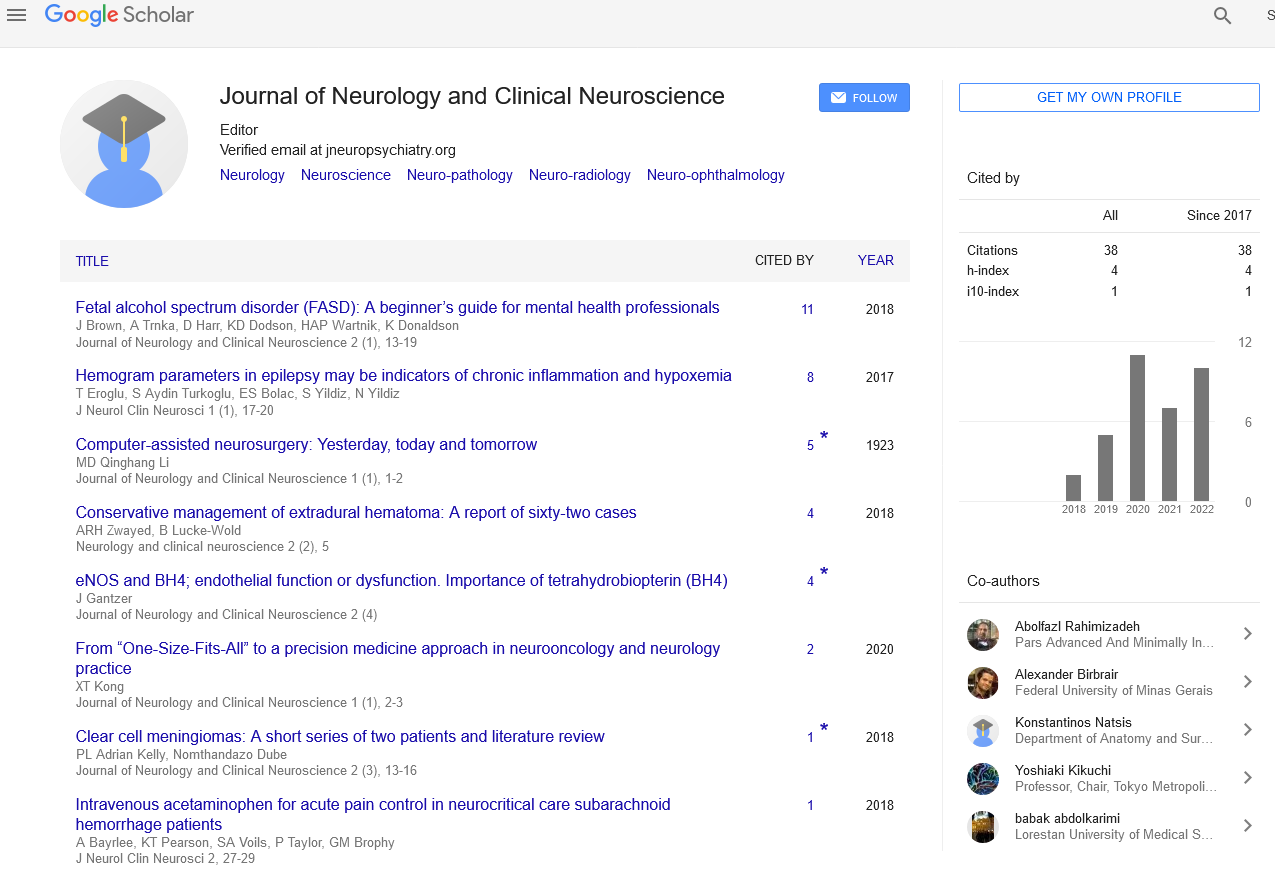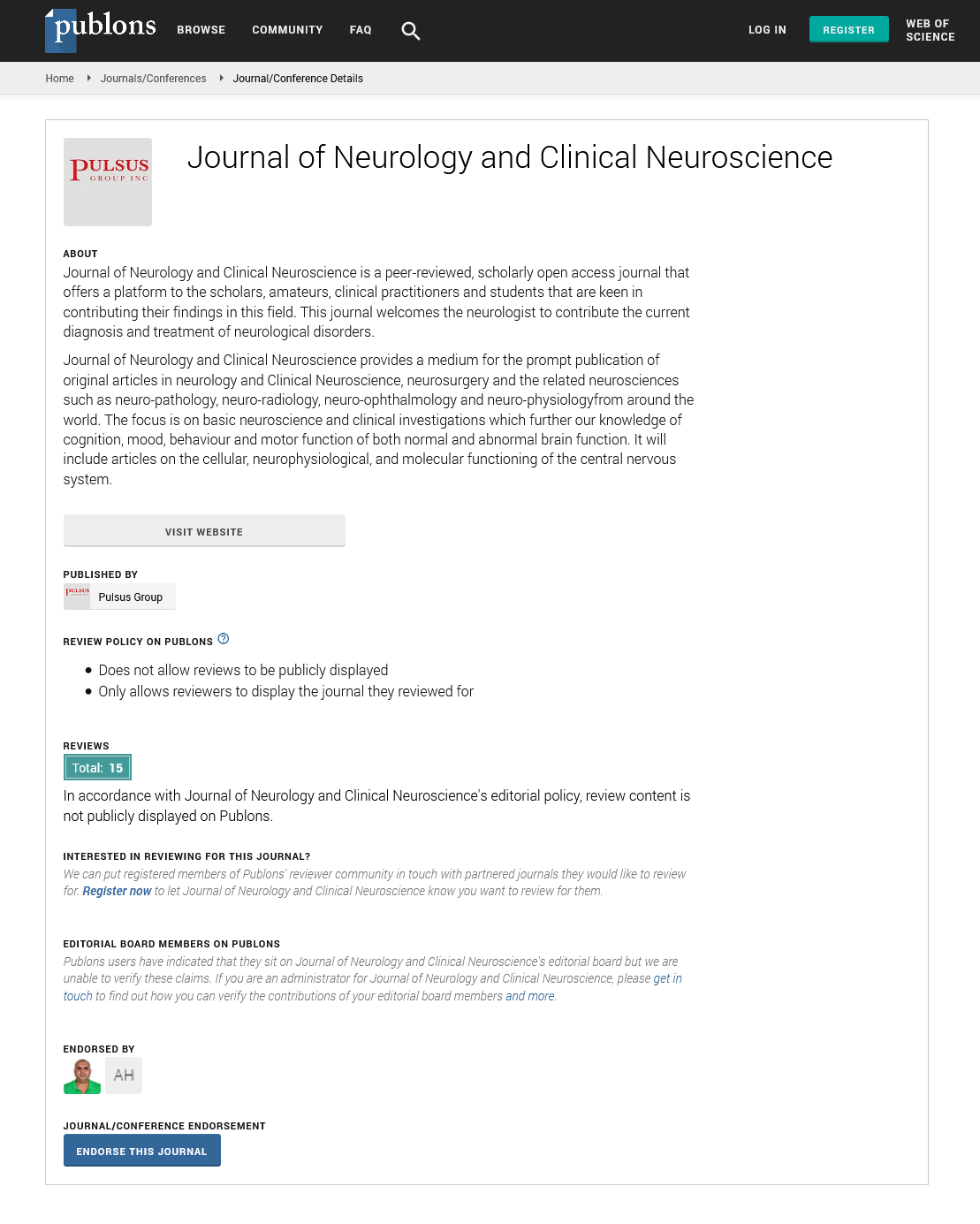Sign up for email alert when new content gets added: Sign up
Executive dysfunctions associated with frontostriatal circuity in bipolar affective disorder I: Are they associated with depression, mania or both?
Joint Event on 4th International Conference on Neurology and Healthcare & International Conference on Clinical and Experimental Neuropsychology & 3rd World Drug Delivery and Formulations Summit
June 24-25, 2019 | Rome, Italy
Paulina Golinska, Krystyna Buszman, Michal Harciarek
University of Gdansk
University of Silesia in Katowice
Posters & Accepted Abstracts: J Neurol Clin Neurosci
Abstract :
Objective: Bipolar Affective Disorder I (BDI) has been associated with frontostriatal abnormalities and thus, executive problems. However, it remains unclear whether executive dysfunctions in BDI are predominantly associated with mania, depression or are state-independent. Further, executive processes are relatively heterogeneous, with different frontostriatal circuits subserving different executive function. Specifically, whereas the Dorsolateral Prefrontal Cortex (DLPFC) has been shown to be associated with organizational strategies, working memory and problem solving, Anterior Cingulate Cortex (ACC) is involved in response initiation and monitoring. In addition, Orbitofrontal Cortex (OFC) seems to be to be related with impulse control. Hence, the aim of this study was to better characterize executive problems in BDI as well as to test if the hypothetical specificity of executive impairment in this population may indicate a dysfunction of the specific frontostriatal circuit(s).
Participants and Methods: Twenty-two patients with BDI (11 mania and 11 depressed) participated in this study. DLPFC functions were assessed using: Verbal Fluency (response generation with clustering and switching components), Digit Span, Trail-Making Test; ACC: The Verbal Fluency Test (response initiation), Stroop test; OFC: multiple loops and altering sequence task.
Results: Manic state was particularly associated with executive problems indicating ACC pathology. Additionally, although both patients’ groups had deficits suggesting executive dysfunction of the circuit involving dorsolateral prefrontal, these problems were more pronounced in patients with mania.
Conclusions: In BDI, executive problems are particularly characteristic for patients with mania. The results of this study will be discussed in the context of three frontostriatal circuits subserving different executive processes
Biography :
Paulina Goli√?¬?ska is a PhD candidate in psychology at University of Gda√?¬?sk in Poland. Her interests are focused on experimental and clinical neuropsychology. For PhD thesis, she conducting a research concerning symptoms charateristic for damages in frontal areas in people with Parkinson’s disease (apathy, anterior-attentional system and anosognosia). She also worked as a therapist with people after traumatic brain injuries.
E-mail: golinska.paula@gmail.com





